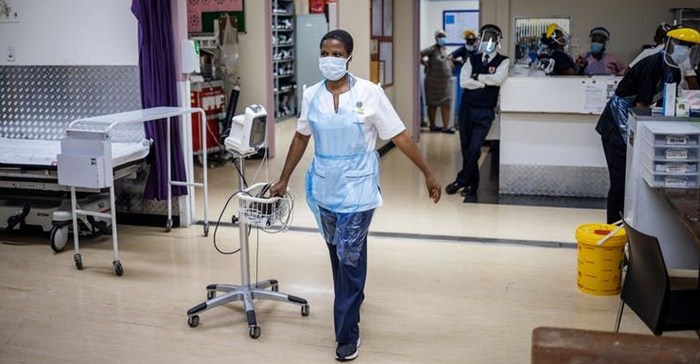






Civil society’s goodwill towards the health profession is justified. But how long will it last?
Doctors and hospitals have to make difficult decisions when treating Covid-19 patients. These include withdrawing patients from ventilators. And patients with other conditions might suffer because care was unavoidably diverted to Covid-19. It’s possible that patients or their families could litigate.
In South Africa, the health profession has been operating in a highly litigious context over the past decade. One of the reasons is a growing awareness of patient rights. That’s coupled with aggressive marketing by personal injury lawyers eager to capitalise on this awareness.
It’s a concern for private and public hospitals, indemnity insurers and civil society because when doctors are preoccupied about future litigation over decisions they are forced to make during the pandemic, they will be forced to practise defensive medicine. Some were already doing so before Covid-19 – and it inflates the cost of healthcare.
Based on malpractice claims, costs for indemnity insurance cover have spiralled. This has forced many specialists to reduce their scope of practice or increase their consultation fees. For example, many doctors who qualified as obstetricians and gynaecologists no longer practise obstetrics because of exorbitant indemnity cover and claims in this field of practice. Such claims are considerably higher than other fields of work; one reason is the lifetime costs of caring for a person who was disabled at birth.
This vicious cycle of litigation claims and more expensive service is having a negative impact on health service delivery. For one thing, spiralling claims in the public health sector mean the health budget is spent on settling legal claims instead of on healthcare.
It’s possible that the huge pressures on the health system created by the Covid-19 pandemic could make the situation even worse. As patient numbers increase, ratios of staff to patients will worsen, as they have globally, which could affect quality of care, despite the best efforts of highly competent healthcare professionals. Infection of hospital staff, fatigue and moral distress related to the pandemic will also have an impact on service delivery.
If the number of cases increases substantially, specialists such as paediatricians, dermatologists or surgeons would have to work in emergency medicine or critical care. Retired doctors and nurses are encouraged to assist frontline healthcare professionals. Doctors without current re-registration status with professional bodies are allowed to continue practising for now.
But if there’s a claim of negligence because of what they did or failed to do in these unusual circumstances, what standard would be used to judge them?
The public health response to the Covid-19 pandemic requires some extraordinary measures. Professional bodies globally, including the Health Professions Council of South Africa, have recognised this. They have issued updated guidance on practising outside one’s profession, telemedicine and registration extensions.
The greatest concern for healthcare professionals working in critical care is the need to withdraw ventilation because there aren’t enough ventilators available. The country’s constitution says a person’s rights – such as access to healthcare – can be limited. And withdrawal of care is accepted by the Health Professions Council of South Africa as indicated in its published guidance. But withholding or withdrawing treatment refers to futile care. During Covid-19 care, futility might not be the reason patients are removed from a ventilator. It might rather be deterioration in their condition while other patients with a better prognosis need intensive care. The guideline is therefore not entirely applicable in a Covid-19 pandemic context.
The New York state governor issued directives to provide temporary immunity from civil liability for injury and death as a result of an act or omission during the pandemic for a limited period. In the UK, the British Medical Association issued guidance but this has been met with legal challenges.
The South African Health Professions Council acknowledges that its response to complaints from the public will “consider the extraordinary circumstances in which practitioners are working and the heavy demands on them during this period”. The council’s mandate is to serve the profession and protect the public.
But Parliament has remained silent on any form of temporary legal indemnity for healthcare professionals in South Africa. Gross negligence in healthcare will not be excused under any circumstances. But we think standards for reasonableness will certainly not be the same as in pre-Covid-19 times.
National guidance (still awaited) on allocation of scarce resources, when developed, might protect healthcare professionals working in the public sector. It’s not known whether private sector doctors and independent practitioners will be included.
It’s also not clear how the legal and professional systems in South Africa will make provision for negligence claims and complaints that arise out of retired doctors and nurses returning to work in the pandemic or doctors working outside of their medical specialisation. This is a legal hiatus that needs to be addressed urgently.
This article is republished from The Conversation under a Creative Commons license. Read the original article.![]()

The Conversation Africa is an independent source of news and views from the academic and research community. Its aim is to promote better understanding of current affairs and complex issues, and allow for a better quality of public discourse and conversation.
Go to: https://theconversation.com/africa